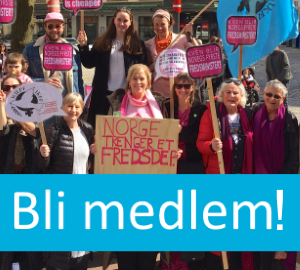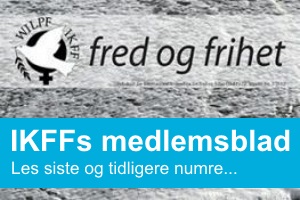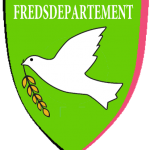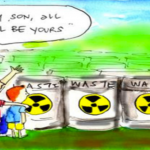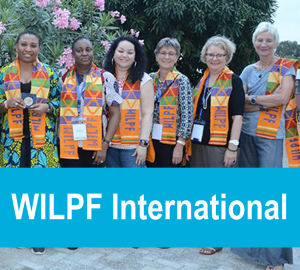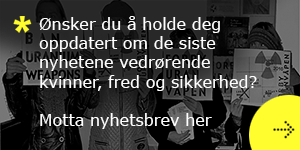Dear WILPFers,
Since our establishment in 2015, the Standing Committee on Organisational Development (SCOD) has worked in close cooperation with ExCom Vice President Margrethe Tingstad, Standing Constitution Committee Convenor Lyn Lane and Standing Finance Committee Convenor Inge Stemmler on how, together, we can create, nurture, grow and re-structure our membership organisation efficiently.
With this message we want to share SCOD’s reflections with you. They are based on the numerous discussions we have had with members in sections and during regional meetings (in Europe and in Africa). They are also based on the findings in the 2013 ad-hoc report on WILPF organisational development, the recommendations of the 2016 evaluation of WILPF made by Eleanor O’Gorman and the discussions we had during the 2016 International Board (online) meeting. Finally, we are happy that our reflections go hand in hand with the responses to the 2017 questionnaire put together by Chris Henderson from WILPF Australia.
What makes us one
The findings of SCOD and the responses to the ExCom questionnaire tell us what inspires the members of WILPF and unifies us as one voice:
As WILPF members, we are opposing dominant narratives and mainstream power politics, and we are not just observers and/or victims of a given political agenda. Instead, we are sharing our analyses of root causes of conflicts and wars, and we translate these from our founding resolutions into the actual political context.
We constantly deepen our understanding of diversity, strengthen our cultural competence and train ourselves in nonviolent methods to stop war.
Our expertise lies in our Academic Network, in our international programmes and most of all it comes from our diverse and rich membership. We know that we depend on each other and our interconnection enriches the whole.
Furthermore, we are engaged in intergenerational dialogues with women and men on how we best mobilise together to reach our vision, and we support each other in the foreseeable challenges. We believe successful dialogue is best achieved through face-to-face meetings in order to build trust, to feel the spirit of WILPF and to transmit stories of courageous and devoted women.
What we are facing
During the past 10-20 years the world has changed, and so have the challenges we as WILPF members are facing.
Grassroots women organisations are threatened by the general tendency of shrinking space for civil society, and women’s viewpoints are neglected and participation missing. As we speak out against the root causes of conflicts and the tremendous impact of the economic system on our lives, we are often threatened by marginalisation in our societies and/or even put in danger for our activism.
In a world dominated by money, voluntary work on a political and humanitarian basis and in a spirit of “commons” is at risk. Peace activism is a notoriously low-funded area of civic engagement—a sector where we have made great progress with movement building in recent years.
The way people join organisations has changed. Today, people are loosely organising through the internet—they sign petitions online with one click and then they move forward to the next cause. They rarely commit themselves to long-term membership—unless the organisations give them a special reason to do so. The number of members in many sections is decreasing, and many report the difficulty of attracting new, and especially younger, members. WILPF’s specificity nevertheless is a committed membership and their political involvement.
In addition, WILPF has a growing number of international members, who are not bound to a specific national section, and are not yet included in our decision-making procedures. Movement building should not be in contradiction to growing membership.
The path forward
To move forward, we must make some organisational changes to correspond to diverse expectations and needs. This is also what we hear from sections and from the answers in the questionnaire.
We see that the International Board (IB), as defined in our Constitution, is barely functioning as a political and governance body. An IB of 33 and expanding as we increase the number of sections is too big and is failing to function effectively.
Many members miss to be involved sufficiently in political thinking, dialogue and actions by the existing ExCom, and we believe a new structure should raise the engagement of members and inspire political discussions in WILPF.
The way forward is to re-structure the governance of WILPF in order to integrate the knowledge and devotion of members, and SCOD is working in this direction together with the ExCom and the other Standing Committees. The key word for this is “OneWILPF”.
A proposal for a new governance structure, endorsed by ExCom, will shortly be shared with all members. Members’ input will be captured in September and October leading up the IB meeting in November 2017. The 2017 IB meeting will be asked to endorse the proposal in principle, prior to going to the Standing Constitution Committee for it to update the draft constitution. Further consultations among sections and decisions by IB in April will occur in the regions and during the months before congress. SCOD is supporting this process and looks forward to engaging in a dialogue with members.
What do we envision? WILPF has grown. WILPF has done so much in the last few years. And now it’s time for the International Board to be restructured into a leaner and more efficient governing body by and for WILPF’s members.
by Heidi Meinzolt
Convenor of SCOD



